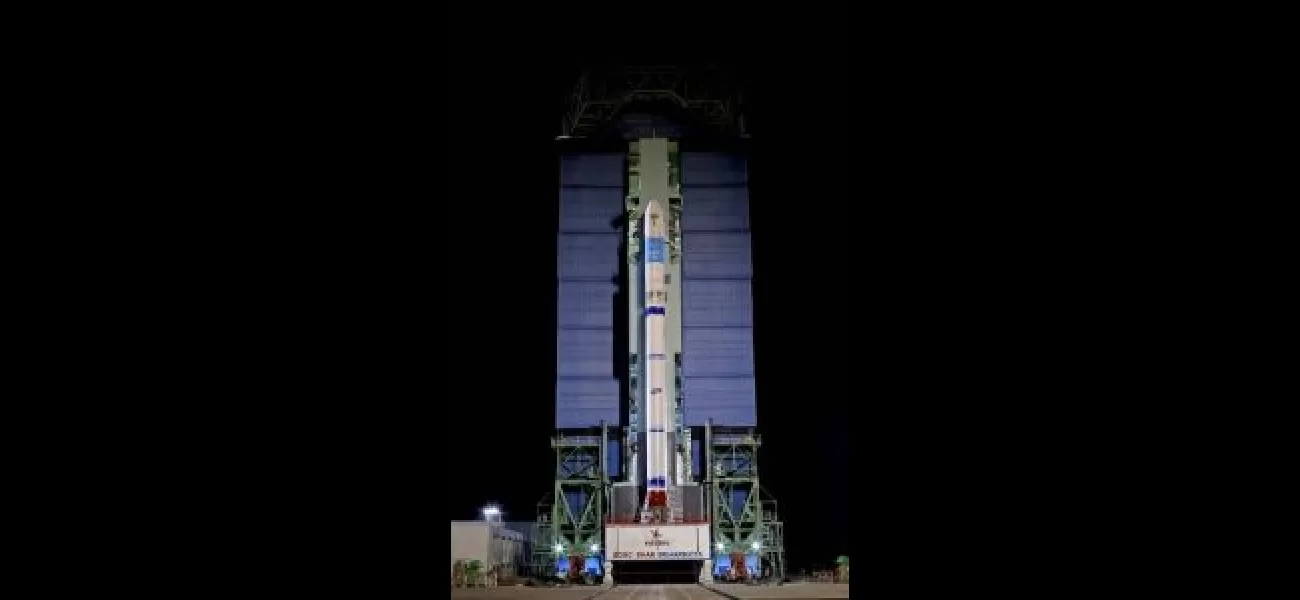Australia-built satellite to be launched by SSLV for first commercial mission in 2026.
India's NSIL and Space Machines Company have announced that the SSLV rocket will launch the Optimus satellite, marking the first dedicated commercial launch for the rocket.
June 26th 2024.

On Wednesday, NSIL, the commercial arm of ISRO, announced that their newest rocket, the SSLV, will soon have its first dedicated commercial launch. This historic event will take place when the SSLV successfully puts into orbit the Optimus satellite, designed and built by Australia-based Space Machines Company.
The exciting news came during the India Space Congress, an event organized by the Satcom Industry Association-India. Representatives from NSIL and Space Machines Company jointly made the announcement, marking a significant milestone in the partnership between the two countries.
According to a statement from NSIL, the upcoming launch will also be notable for being the first dedicated commercial launch for the SSLV. The rocket's previous commercial mission, the SSLV-D2, launched the Janus satellite, weighing only 10 kilograms. In comparison, the Optimus satellite weighs a whopping 450 kilograms, making it the largest Australian-designed and built spacecraft to date.
PTI had the chance to speak with NSIL Chairman and Managing Director, Radhakrishnan Durairaj, who expressed his enthusiasm for the upcoming launch. He shared, "This will be the first dedicated commercial launch for the SSLV . The first commercial launch was Janus, a 10-kilogramme nanosatellite on board the SSLV-D2 mission."
The SSLV's launch of the Optimus satellite is scheduled for 2026, and it will be a defining moment for the collaboration between India and Australia in the field of space. The mission, aptly named Space MAITRI, will bring the two nations' commercial, institutional, and government space organizations closer, strengthening their ties.
Rajat Kulshrestha, CEO and co-founder of Space Machines Company, also expressed his excitement for the upcoming launch. He said, "By combining our innovative spacecraft capabilities with India's proven launch expertise, we are not only strengthening the ties between our nations' space sectors but also demonstrating our shared commitment to sustainable space operations."
The mission's focus on debris management and sustainability aligns with the core values and objectives of both countries. It promotes responsible space operations and works towards mitigating the growing threat of space debris. This launch will not only be a significant achievement for India and Australia but also a step towards a more sustainable and responsible approach to space exploration.
The exciting news came during the India Space Congress, an event organized by the Satcom Industry Association-India. Representatives from NSIL and Space Machines Company jointly made the announcement, marking a significant milestone in the partnership between the two countries.
According to a statement from NSIL, the upcoming launch will also be notable for being the first dedicated commercial launch for the SSLV. The rocket's previous commercial mission, the SSLV-D2, launched the Janus satellite, weighing only 10 kilograms. In comparison, the Optimus satellite weighs a whopping 450 kilograms, making it the largest Australian-designed and built spacecraft to date.
PTI had the chance to speak with NSIL Chairman and Managing Director, Radhakrishnan Durairaj, who expressed his enthusiasm for the upcoming launch. He shared, "This will be the first dedicated commercial launch for the SSLV . The first commercial launch was Janus, a 10-kilogramme nanosatellite on board the SSLV-D2 mission."
The SSLV's launch of the Optimus satellite is scheduled for 2026, and it will be a defining moment for the collaboration between India and Australia in the field of space. The mission, aptly named Space MAITRI, will bring the two nations' commercial, institutional, and government space organizations closer, strengthening their ties.
Rajat Kulshrestha, CEO and co-founder of Space Machines Company, also expressed his excitement for the upcoming launch. He said, "By combining our innovative spacecraft capabilities with India's proven launch expertise, we are not only strengthening the ties between our nations' space sectors but also demonstrating our shared commitment to sustainable space operations."
The mission's focus on debris management and sustainability aligns with the core values and objectives of both countries. It promotes responsible space operations and works towards mitigating the growing threat of space debris. This launch will not only be a significant achievement for India and Australia but also a step towards a more sustainable and responsible approach to space exploration.
[This article has been trending online recently and has been generated with AI. Your feed is customized.]
[Generative AI is experimental.]
0
0
Submit Comment





